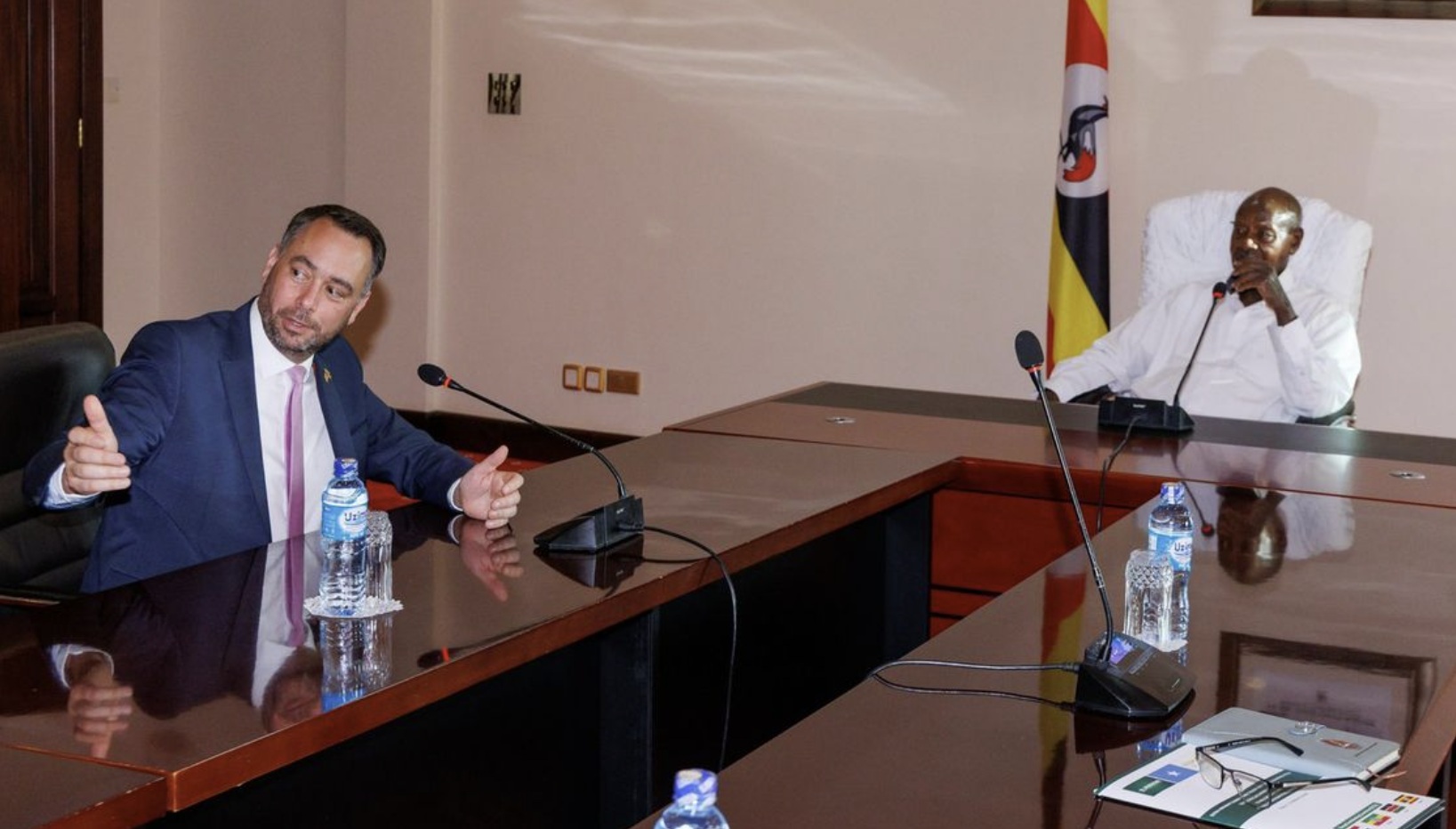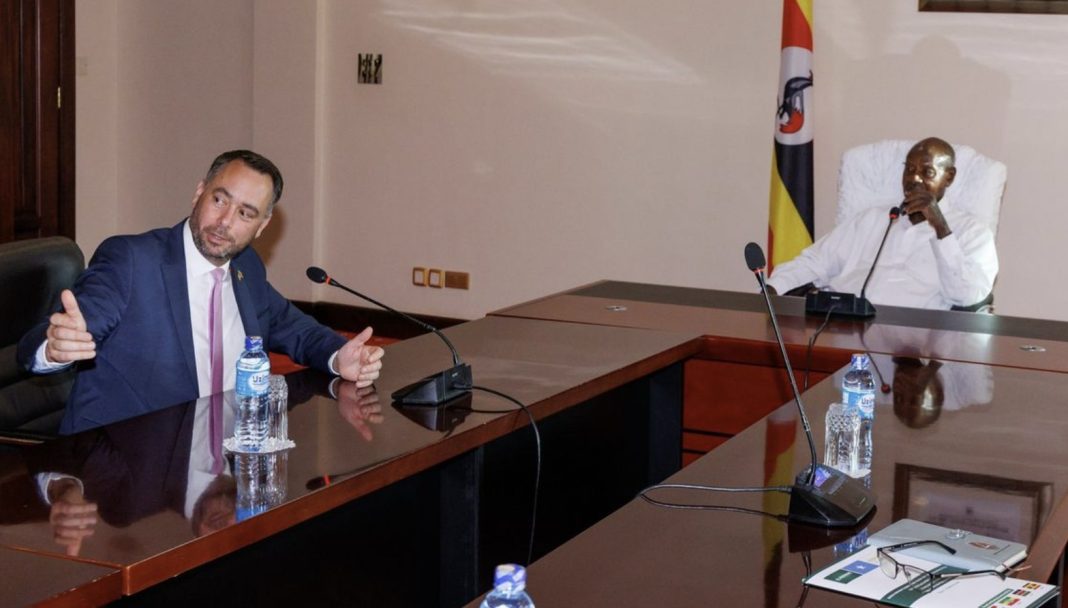The Belgian government has expressed its desire for Ugandan President Yoweri Kaguta Museveni to mediate in restoring diplomatic relations between Rwanda and Belgium, which were severed on March 17, 2025.
Maxime Prévot, Belgium’s Deputy Prime Minister and Minister of Foreign Affairs, raised the issue during his meeting with President Museveni on Friday, April 25.
Speaking to journalists after their talks, Prévot said Belgium still considers Rwanda a critical partner in the region and views the country as well-positioned to contribute to lasting solutions for insecurity in eastern Democratic Republic of Congo (DRC).
Beyond discussing regional security, Prévot emphasized that Museveni’s diplomatic experience could be key in rebuilding ties between Belgium and Rwanda.
He described President Museveni as a “valuable figure” capable of acting as a bridge between nations experiencing diplomatic tensions.
Currently on a working tour of Great Lakes countries including Uganda, DRC, and Burundi, Prévot expressed disappointment that he could not visit Rwanda due to the frozen diplomatic relations.
As reported by The East African, Prévot said Belgium sees Museveni’s influence and the respect he commands among regional leaders as a crucial asset in peace efforts for eastern Congo and in mending ties with Rwanda.
“In the unfortunate circumstances we are in, it was not possible for me to visit Rwanda after the country decided to suspend diplomatic relations with Belgium.
I explained to President Museveni that there were many misunderstandings. Cutting diplomatic ties is not the proper solution for people who have differing views,” Prévot said.
Rwanda severed ties with Belgium following a thorough review, accusing Belgium of continuing colonial-era behavior that had historically divided Rwandans and contributed to the 1994 Genocide against the Tutsi.
Rwanda also criticized Belgium for allegedly collaborating with the DRC government to spread disinformation internationally against Kigali.
The Rwandan government maintains that relations could be restored if Belgium renounces attitudes perceived as neo-colonial, which Rwanda says continue to harm the stability of the Great Lakes region.
Nevertheless, Prévot expressed optimism that opportunities for dialogue could still arise to rebuild trust and mutual understanding.
He cited Belgium’s ongoing diplomatic engagement with Russia—despite sanctions over the Ukraine conflict—as an example of maintaining dialogue even in difficult circumstances.
On another note, Prévot welcomed recent developments between the DRC government and the M23/AFC coalition, which announced moves towards a ceasefire and peace talks aimed at stabilizing eastern Congo.
Shortly after, Rwanda’s Foreign Minister Amb. Olivier Nduhungirehe and his DRC counterpart Thérèse Kayikwamba Wagner signed a preliminary agreement in Washington, paving the way for further negotiations to normalize relations between the two nations.
The talks were facilitated by U.S. Secretary of State Marco Rubio.
Belgium commended these steps, praising efforts by Qatar, the African Union, the East African Community (EAC), and the Southern African Development Community (SADC) to support peace initiatives.
During their meeting, Museveni and Prévot discussed the worsening security situation in eastern DRC, where government forces (FARDC) and allied militias are fighting against M23/AFC rebels who advocate for the rights of Congolese Tutsis displaced from their ancestral lands.
Both leaders agreed on the urgent need for concrete measures to establish sustainable peace.
Prévot stressed that addressing the root causes of conflict is essential to ending recurring violence:
“In meeting with President Museveni, I reiterated the importance of addressing the core reasons for the war to halt the cycle of atrocities.”
He outlined key areas for achieving lasting peace, including:
Addressing Rwanda’s security concerns over the FDLR terrorist group,
Respecting national sovereignty in the region,
Promoting regional integration,
Resolving the long-standing refugee crisis,
Combating hate speech, and
Upholding human rights for all communities.




